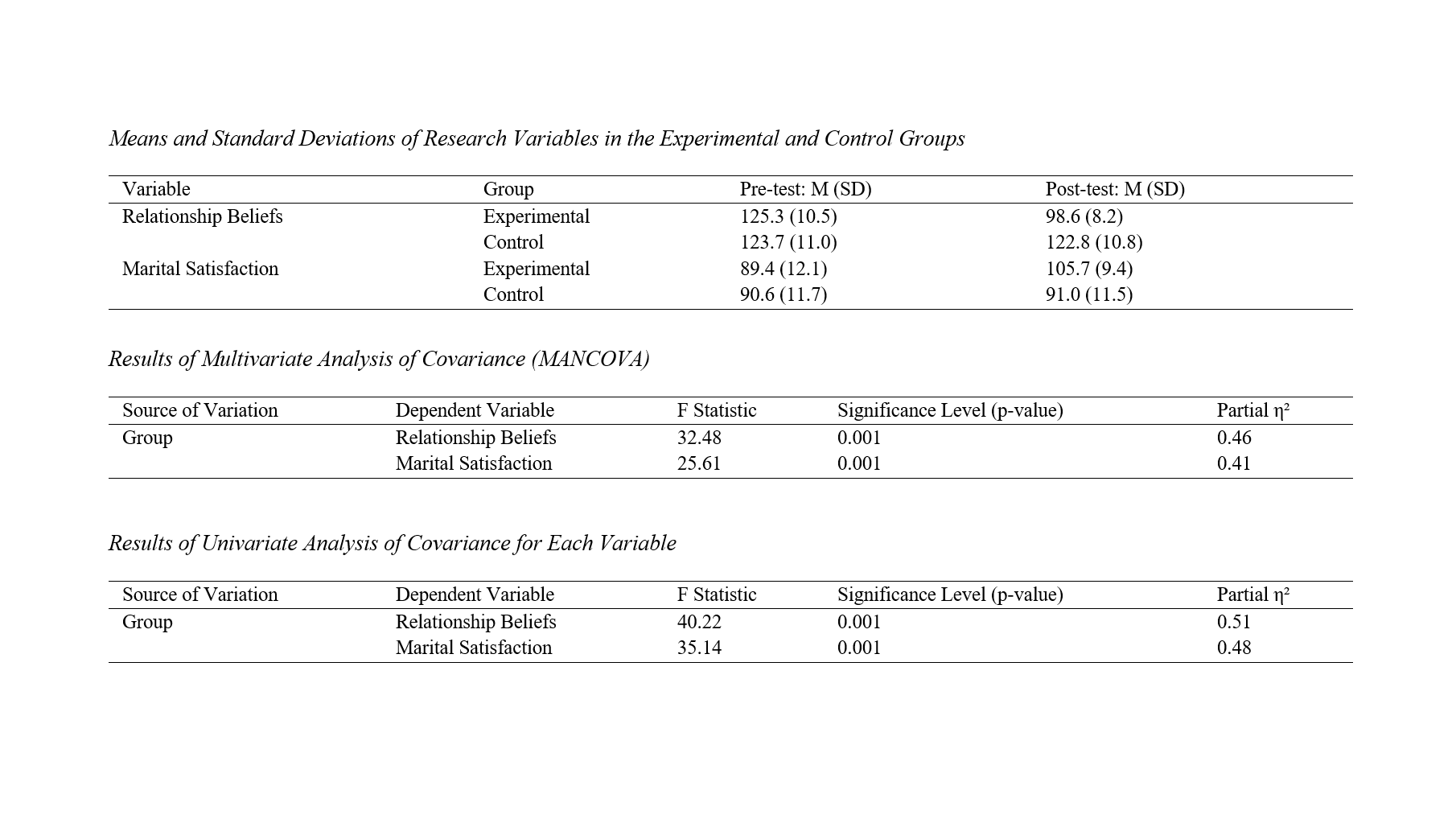Effectiveness of Ellis's Rational Emotive Behavior Therapy on Marital Beliefs and Marital Satisfaction in Women Affected by Infidelity
Keywords:
Rational Emotive Behavior Therapy , relational beliefs, marital satisfaction, marital infidelity, affected womenAbstract
Objective: This study aimed to investigate the effectiveness of Rational Emotive Behavior Therapy (REBT) on marital beliefs and marital satisfaction in women affected by marital infidelity.
Methods and Materials: The research employed a quasi-experimental design with a pretest-posttest control group. The sample consisted of 30 women affected by marital infidelity in Tehran, who were randomly assigned to either the experimental group (n = 15) or the control group (n = 15). The experimental group received 10 sessions of REBT intervention, while the control group did not receive any intervention. The instruments used included the Relationship Belief Inventory (RBI) and the ENRICH Marital Satisfaction Scale. Data were analyzed using Multivariate Analysis of Covariance (MANCOVA) and related statistical tests.
Findings: The results showed that REBT significantly reduced irrational relational beliefs and increased marital satisfaction in women affected by infidelity. The experimental group demonstrated significant improvements in scores on marital beliefs and satisfaction compared to the control group after the therapeutic intervention. The findings of the multivariate analysis of covariance also confirmed the significant impact of REBT intervention on improving the studied variables.
Conclusion: These findings indicate the high effectiveness of Rational Emotive Behavior Therapy (REBT) in changing irrational beliefs and increasing marital satisfaction in women affected by marital infidelity. However, it is recommended that future research with larger sample sizes and long-term follow-ups be conducted to examine the more sustained effects of this therapy.
Downloads

Downloads
Additional Files
Published
Submitted
Revised
Accepted
Issue
Section
License
Copyright (c) 2024 Ronaka Abrishami Savojbolaghi (Author); Mahdieh Rahmanian (Corresponding Author)

This work is licensed under a Creative Commons Attribution-NonCommercial 4.0 International License.









